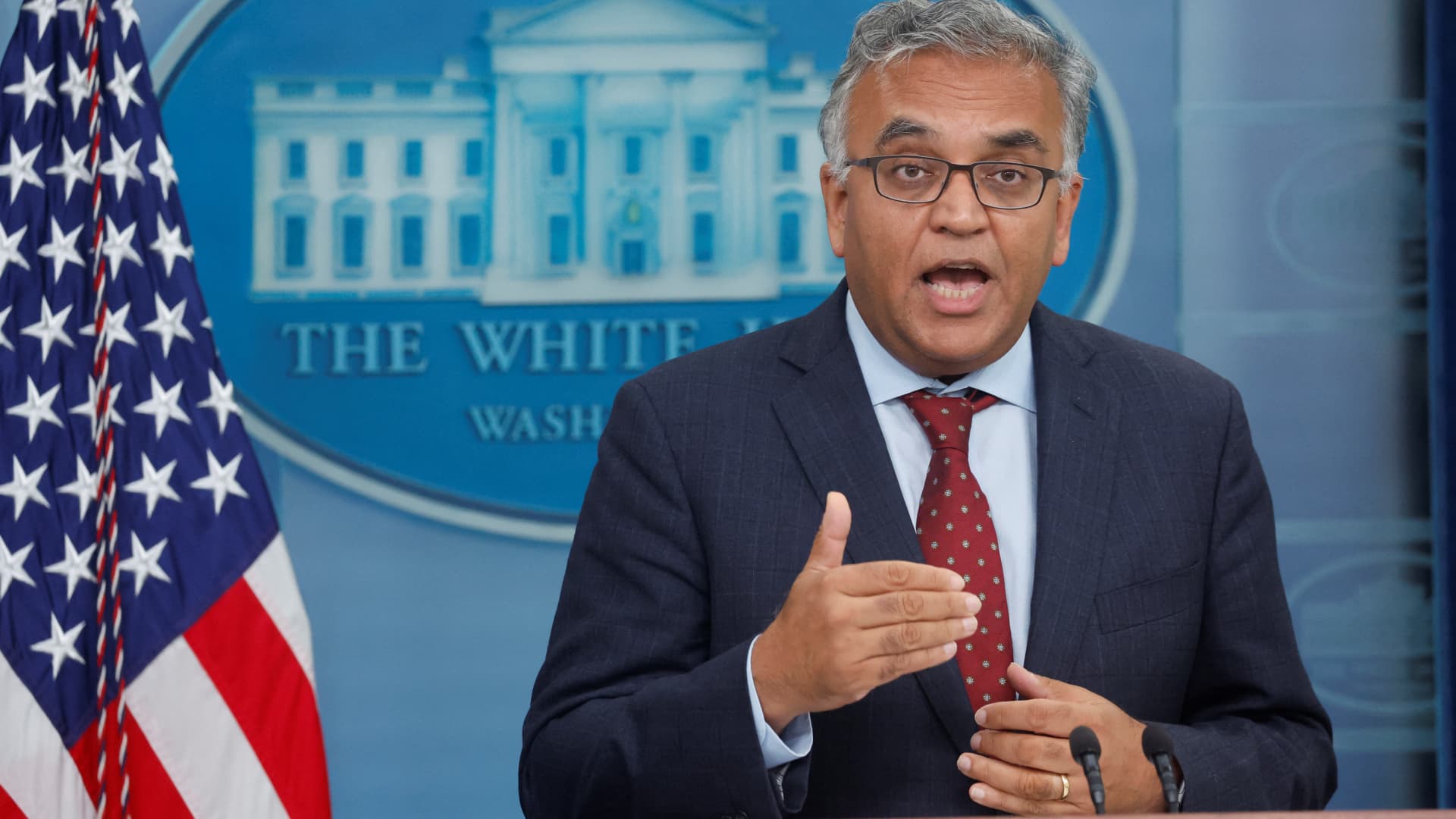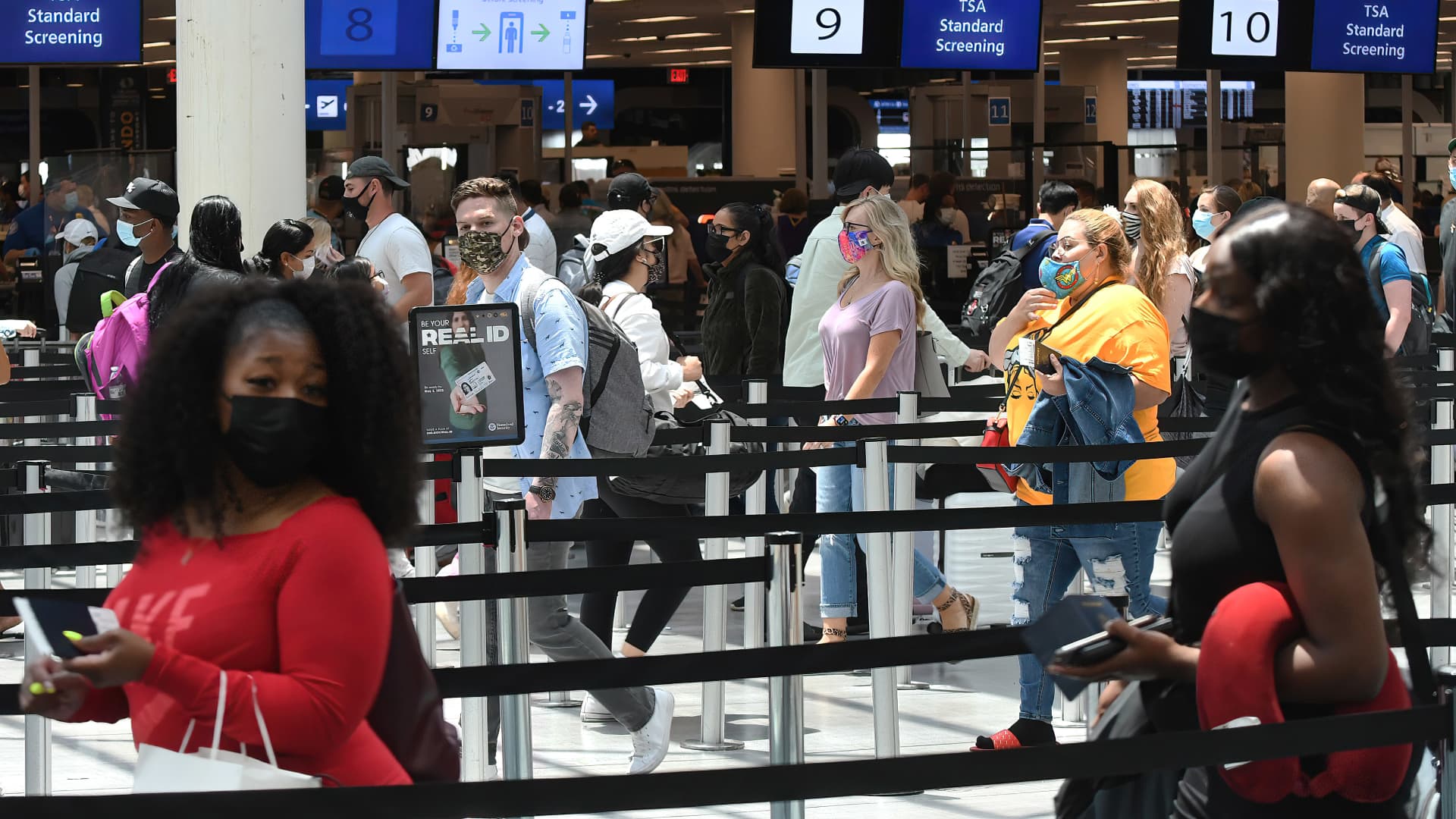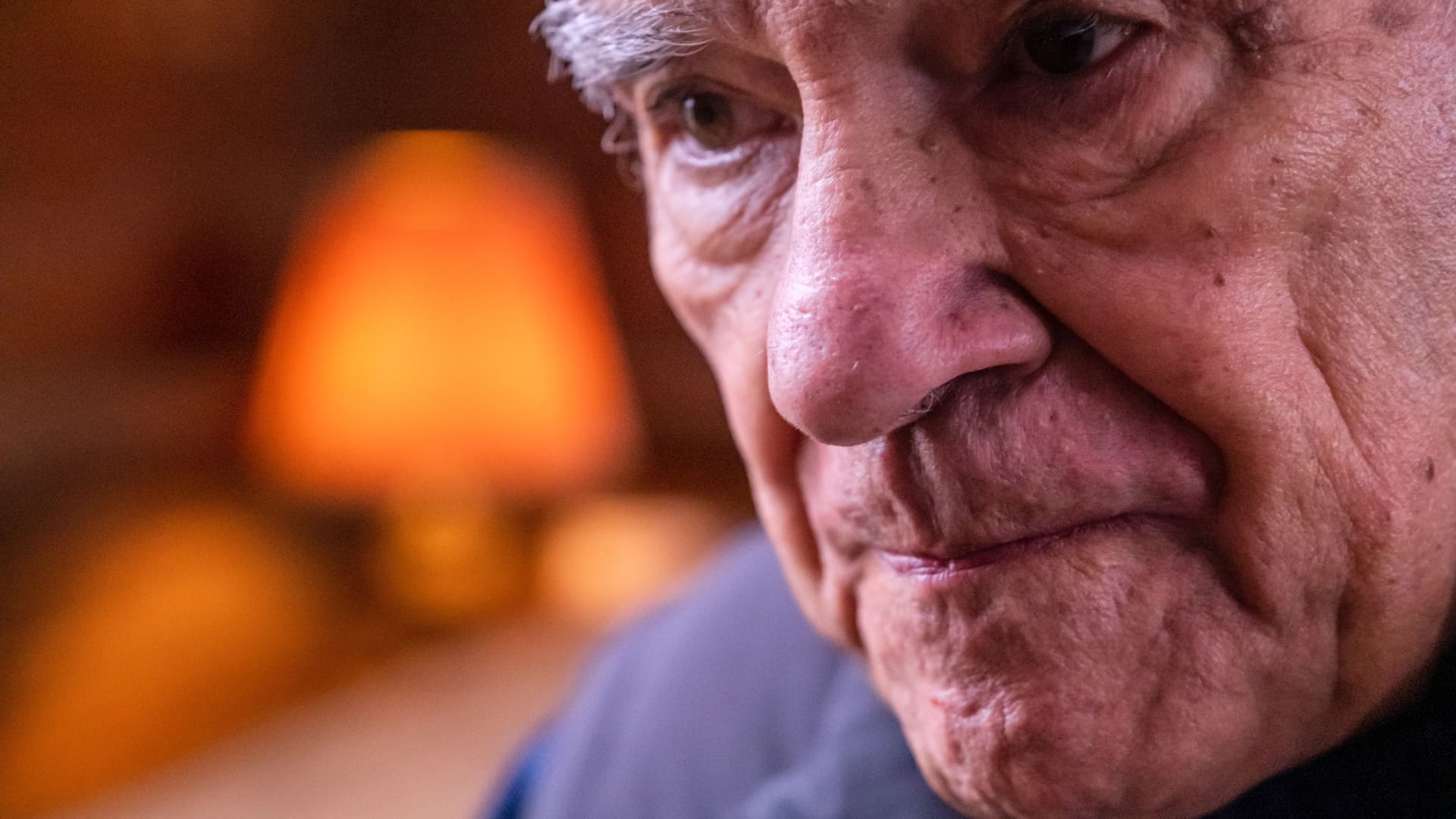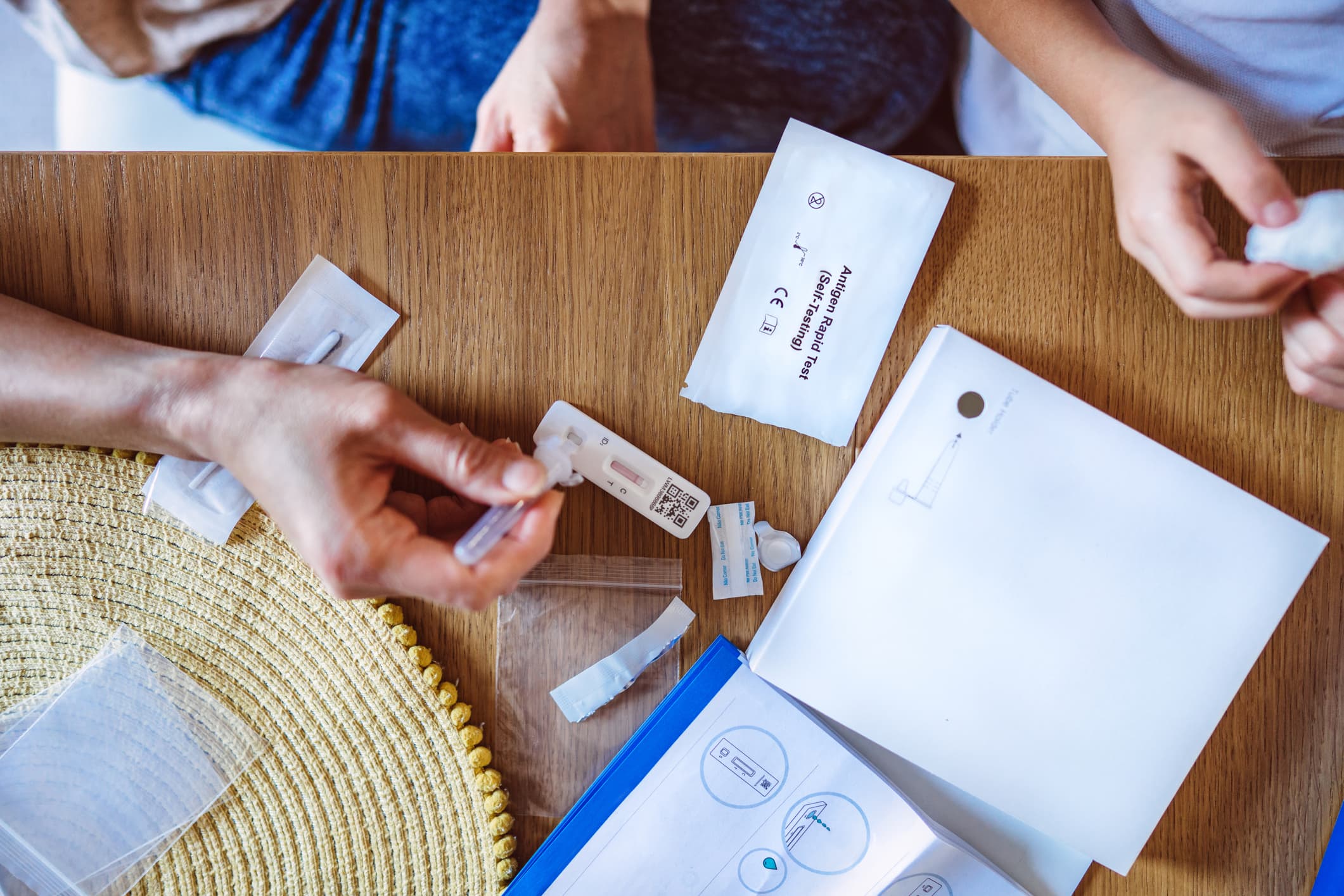White House Covid czar calls on seniors to get omicron booster now — It 'literally could save your life'
Dr. Ashish Jha, White House Covid czar, said everyone older than 50 and senior citizens in particular need to get an omicron booster as soon as possible.

White House COVID-19 response coordinator Ashish Jha addresses the daily press briefing at the White House in Washington, U.S. July 25, 2022.
Jonathan Ernst | Reuters
A top White House health official on Monday issued a stark warning to older people about the health risk they face this fall and winter from Covid-19.
Dr. Ashish Jha, head of the White House Covid task force, said everyone older than 50 and senior citizens in particular need to get an omicron booster as soon as possible.
"If you're over 50, certainly if you're over 65, you've got to go get these vaccines because it actually, literally could save your life. It's a difference between life and death," Jha said during an interview with Yahoo Finance.
The elderly have faced the high risk of falling seriously ill with Covid since the beginning of the pandemic. More than 330 people, on average, are still dying every day from Covid, according to data from the Centers for Disease Control and Prevention.
About 70% of people dying from Covid right now are 75 and older, Jha told reporters earlier this month. He said people dying from the virus are either not up to date on their vaccines or aren't receiving treatments such as the antiviral pill Paxlovid when they have breakthrough infections.
"If you are up to date with your vaccines and if you get treated if you have a breakthrough infection, your risk of dying from Covid is now close to zero," Jha told reporters at the White House last week.
He said people should get their omicron booster by Halloween so they have protection by Thanksgiving when families and friends start to gather for the holidays. U.S. health officials are expecting another round of infections this winter as people spend more time indoors where the airborne virus transmits more easily.

The Food and Drug Administration and the CDC are confident that the new boosters will provide better protection against infection because they target the dominant omicron BA.5 subvariant, while the first generation vaccines were developed against the first strain that emerged in Wuhan, China, in 2019.
The original shots are no longer providing meaningful protection against infection and mild illness because the virus has mutated so much since the pandemic began. In addition to omicron BA.5, the new boosters also include the original Covid strain. Health officials believe these bivalent vaccines will provide superior protection even as the virus continues to evolve because the shots cover so many mutations.
It's not yet clear how much more effective the new boosters will prove in the real world. The FDA authorized the shots without direct human data, relying instead on clinical trials from a similar vaccine that targeted the first version of omicron, BA.1.
Pfizer and BioNTech released the first direct human data on the shots last week. The boosters significantly increased protective antibodies in adults ages 18 and older against omicron BA.5, according to the companies. Antibodies block the virus from invading human cells.
Younger people should also get a booster this fall even though they're at lower risk of getting seriously ill, Jha said. The FDA and the CDC rapidly authorized the omicron shots for children as young as 5 years old last week. Jha said the benefit of getting vaccinated outweighs the risks for young people.
"I've encouraged all my family to get vaccinated, all my friends to get vaccinated, my nieces and nephews and kids have all gotten vaccinated, because for them the benefit outweighs the risks," Jha said.
There was a wave of children hospitalized with Covid during the massive omicron surge last January. Physicians also are worried that kids and young people could develop long Covid even if their infection is mild.
There is an elevated risk of a type of heart inflammation, called myocarditis, in young men and adolescent boys mostly after the second dose of Pfizer's and Moderna's shots. But the CDC, in a study published last April, said the risk of myocarditis is higher after a Covid infection.
The fall booster campaign has gotten off to a sluggish start since the shots rolled out in September, with about 15 million doses administered to date, according to CDC data. Jha said he expects more people will start getting the boosters this month.

 Koichiko
Koichiko 
































